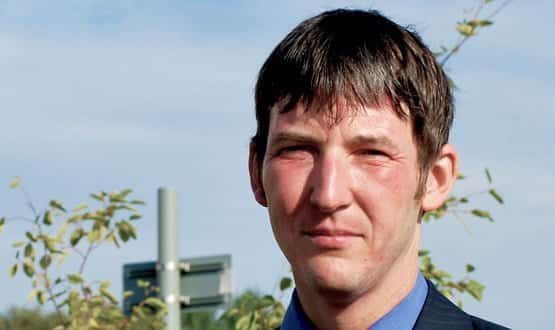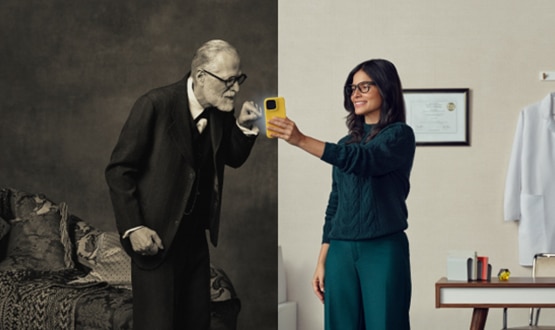CCIO profile: James Reed
- 25 November 2013

When he started medical school, James Reed soon recognised that in one important respect he was something of an anomaly.
“It became obvious, looking around my colleagues and fellow students back in the mid-90s, that most of them weren’t really that interested in computers,” he says.
Dr Reed, on the other hand, was definitely interested. In fact, he remembers the day when he was five or six and his dad brought home a ZX Spectrum. “That was it,” he says. “It was an interest all the way through childhood.”
It meant that when he began his medical training, Dr Reed faced a challenging question: how could he combine his passion for IT with his profession? At the time, there didn’t seem to be an easy answer.
“I looked around a bit and tried to work out if there was a career path that existed,” he remembers. “I read about health informatics as a concept, but there wasn’t really much out there about it – and what there was talked about statistical analysis and data, that kind of thing. It wasn’t really what I was interested in at that point, and there wasn’t anyone I could talk to about it.”
In time, he realised that he would have to forge the connection between clinical and computer himself. He says it was when he was appointed consultant psychiatrist at Birmingham and Solihull Mental Health NHS Foundation Trust that he was really able to start doing so.
“Once you cease to be a trainee and you become a bit more established, you’ve got more opportunities. I just looked round the trust and thought: ‘This is something I want to do, I just need to make it happen’. So I basically went round volunteering for anything at all that I could find that had a technology angle.
“What I found, of course, was that in general I wasn’t pushing my way through lots of other people volunteering! Everybody I spoke to was delighted that somebody was interested and was willing to come to the meetings and talk about this kind of stuff.”
From CCIO in practice to CCIO in name
His interest meant that Dr Reed, a forensic psychiatrist, found himself acting as the central clinical lead for the implementation of the RiO electronic patient record system at the trust. He has also been involved in mini projects such as the creation of a viewer for blood test results.
In short, he quickly became the equivalent of the trust’s informal chief clinical information officer. This autumn, his formal appointment was announced.
“That was my strategy all along really,” he explains. “If I can get out there and show by doing it what this is for, then it’s far easier for people to see and understand the value of it. Informally doing it I hope that demonstrates what the value of it is.
“Because I think there’s been clear, demonstrable value – on the RiO project, for example. OK, there are a lot of challenges in that project – which are ongoing – but had I not been involved I think it would have been a lot more difficult.”
His official role as CCIO once again makes him something of an anomaly. Although the number of CCIO appointments has been steadily growing, CCIOs remain a rare phenomenon in mental health trusts.
Yet, Dr Reed argues, CCIOs are no more nor less important in healthcare organisations tasked with caring for the mind than they are in organisations caring for the body.
“Sometimes I think we kind of imply that we’re different – but the truth is that a big acute trust and a big mental health trust both see patients, both have complicated services,” he argues. “So in some respects, just as a CCIO is obviously needed in an acute trust, one is obviously needed in a mental health trust.”
He does suspect, however, that there may be particular technology challenges faced by a mental health organisation that are not faced by an acute trust.
“I think we probably do have a broader spectrum of work. The difference between the various departments within a hospital is probably less than within a mental health trust.
“At our organisation, we have a secure hospital on one site, and then a national neuropsychiatric service for Huntington’s disease on the other. They’re about as different as you can imagine, and yet we have them all in the same organisation.
“So that’s a really big challenge: just managing the breadth of work. And what’s good for an inpatient service isn’t good at all for a large community service. Trying to take account of all those different approaches is challenging, I think.”
Giving everyone a voice
It’s one of the reasons Dr Reed sees a big part of his new role as “the social side.” His main aim as 2013 draws to a close and 2014 dawns is to meet the key clinical leaders in the trust. “I know what I do day to day, but I also know other people in the organisation do completely different things,” he explains.
“So I’m going to go and see the clinical directors and the consultants, just try to understand what’s going on in their bit of the trust, what he challenges are for them, what they need technology to do for them, what the issues are.”
His ultimate aim is to drive clinical involvement at all levels. “I’d like to make the average clinician feel more involved,” he says. “I think so often they just feel like technologically things happen somewhere else; the IT department does this and does that and it’s all done to them.
“They don’t really have any kind of involvement or role or stake in it at all. As a long term aim, I’d love to get to the point where each member of staff feels like technology is actually helping them and supporting them; that they’ve got a voice and can ask for things and get things done. That’s what I’d like to get to one day.”




